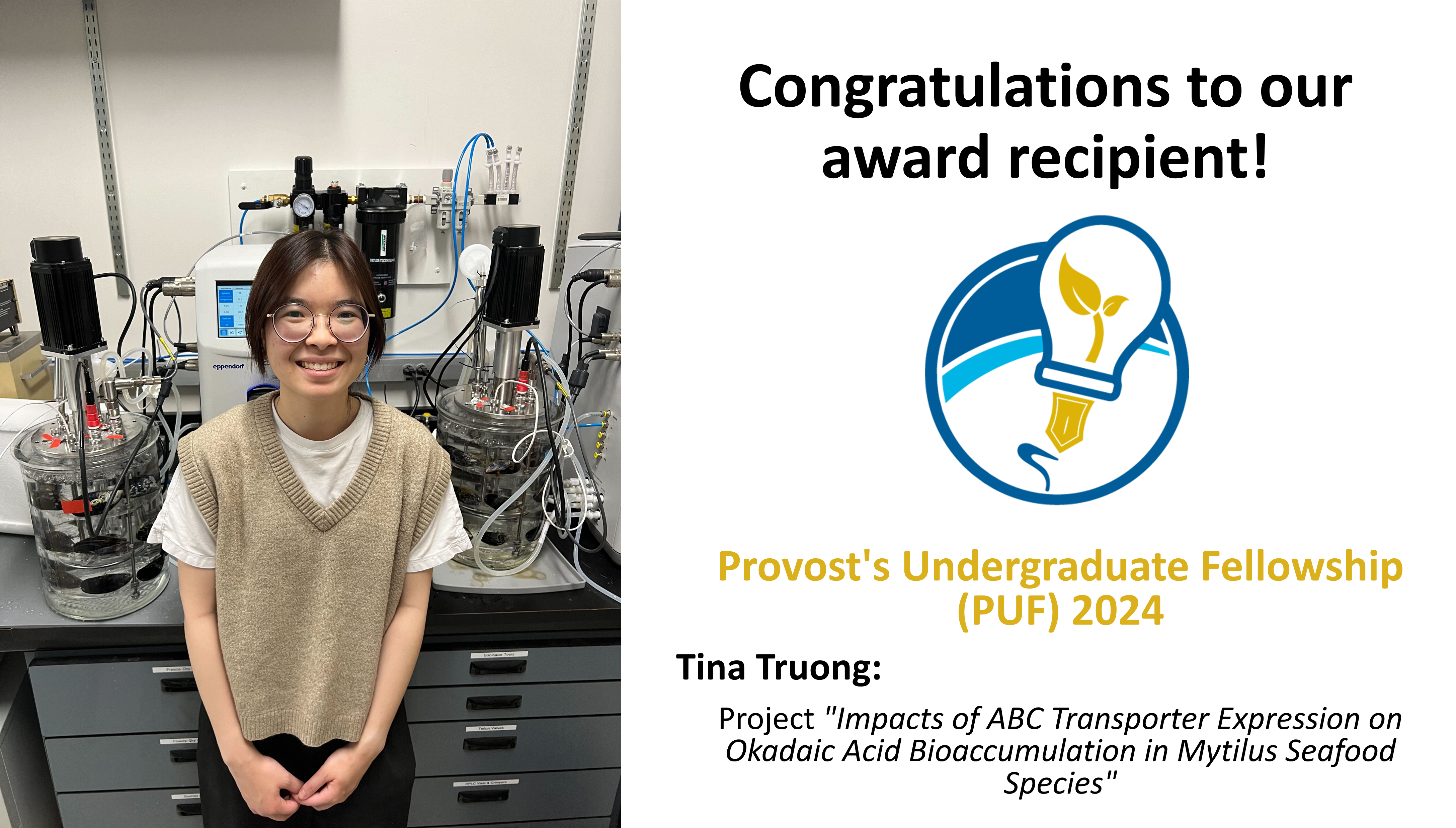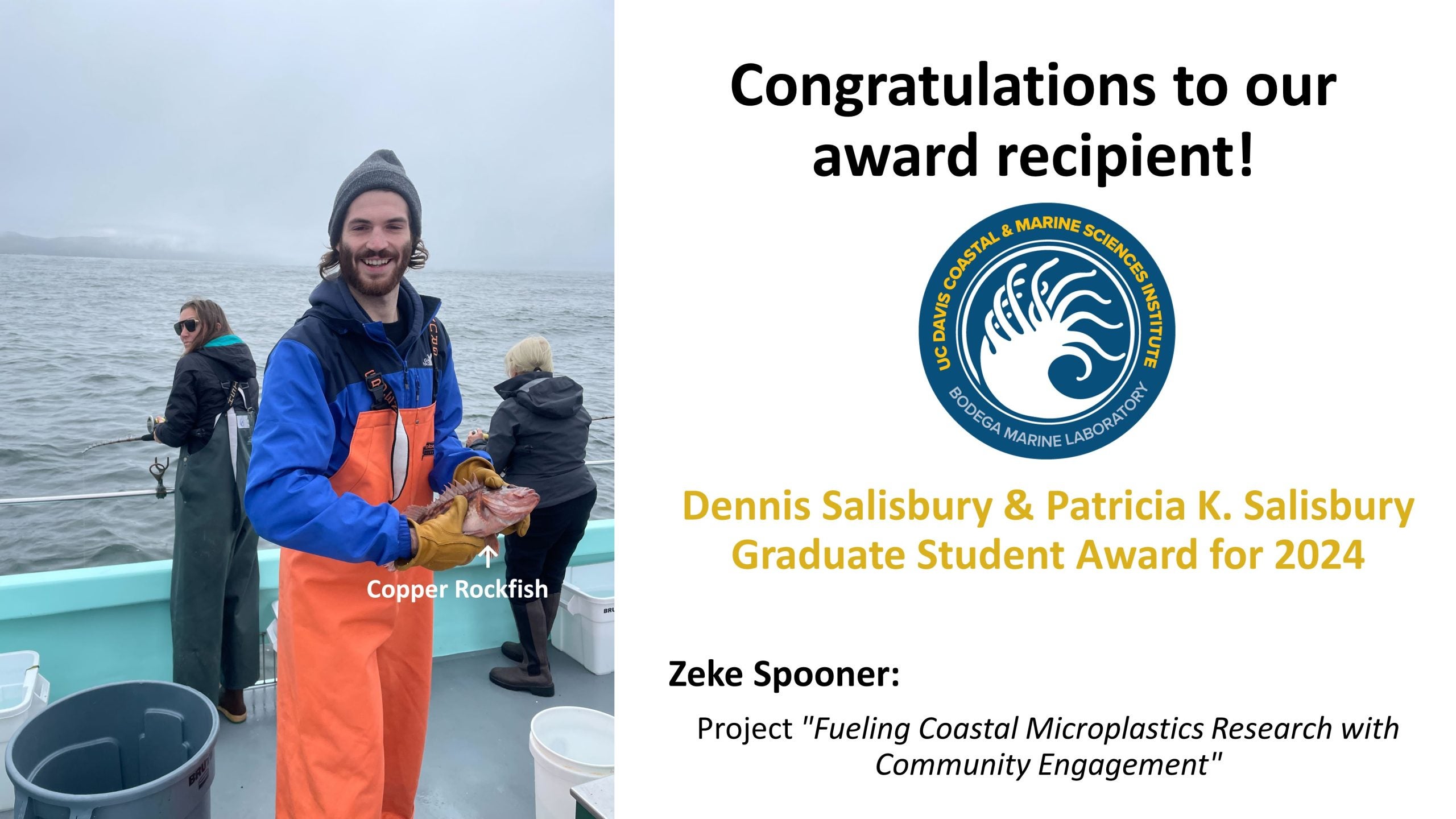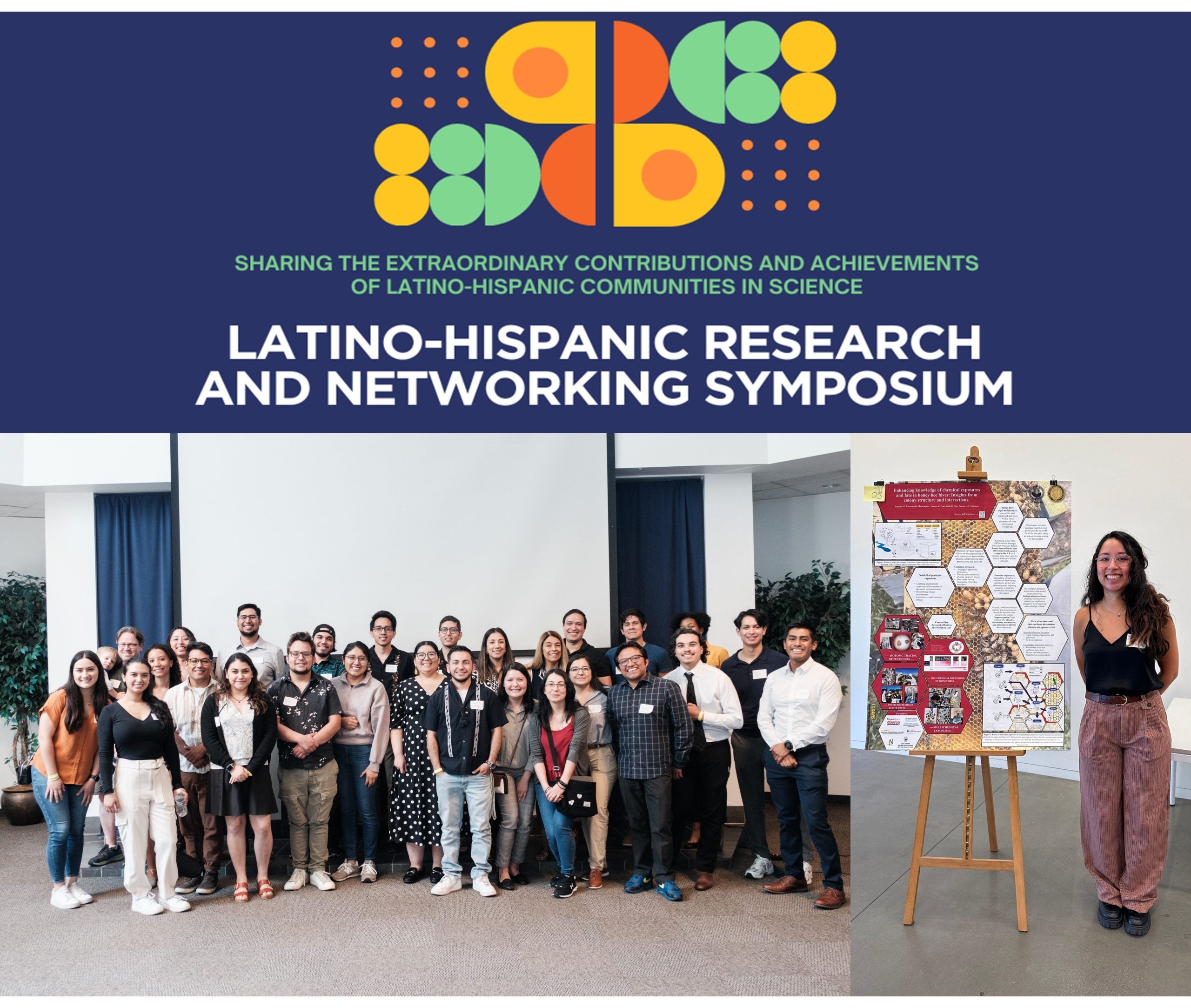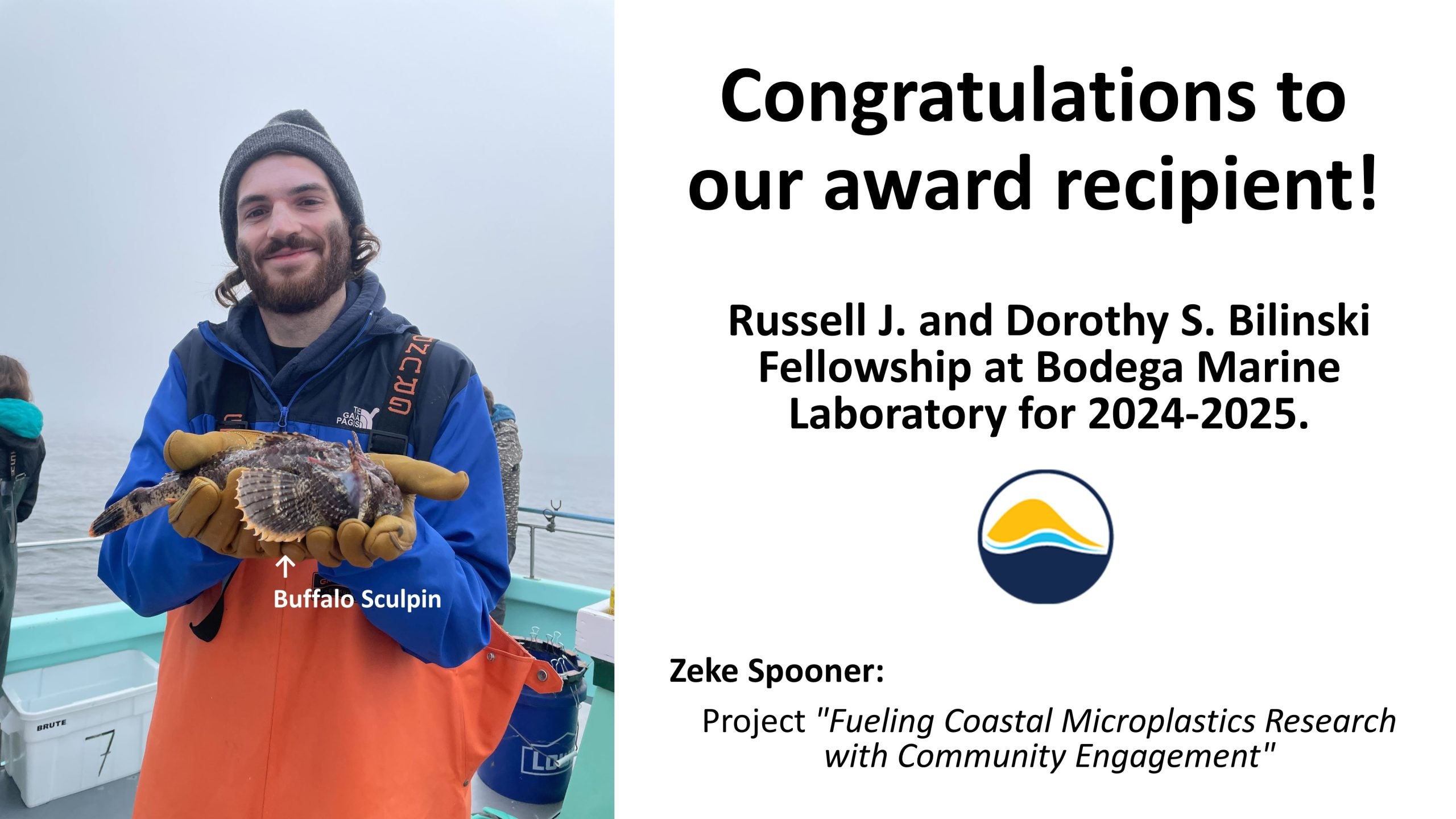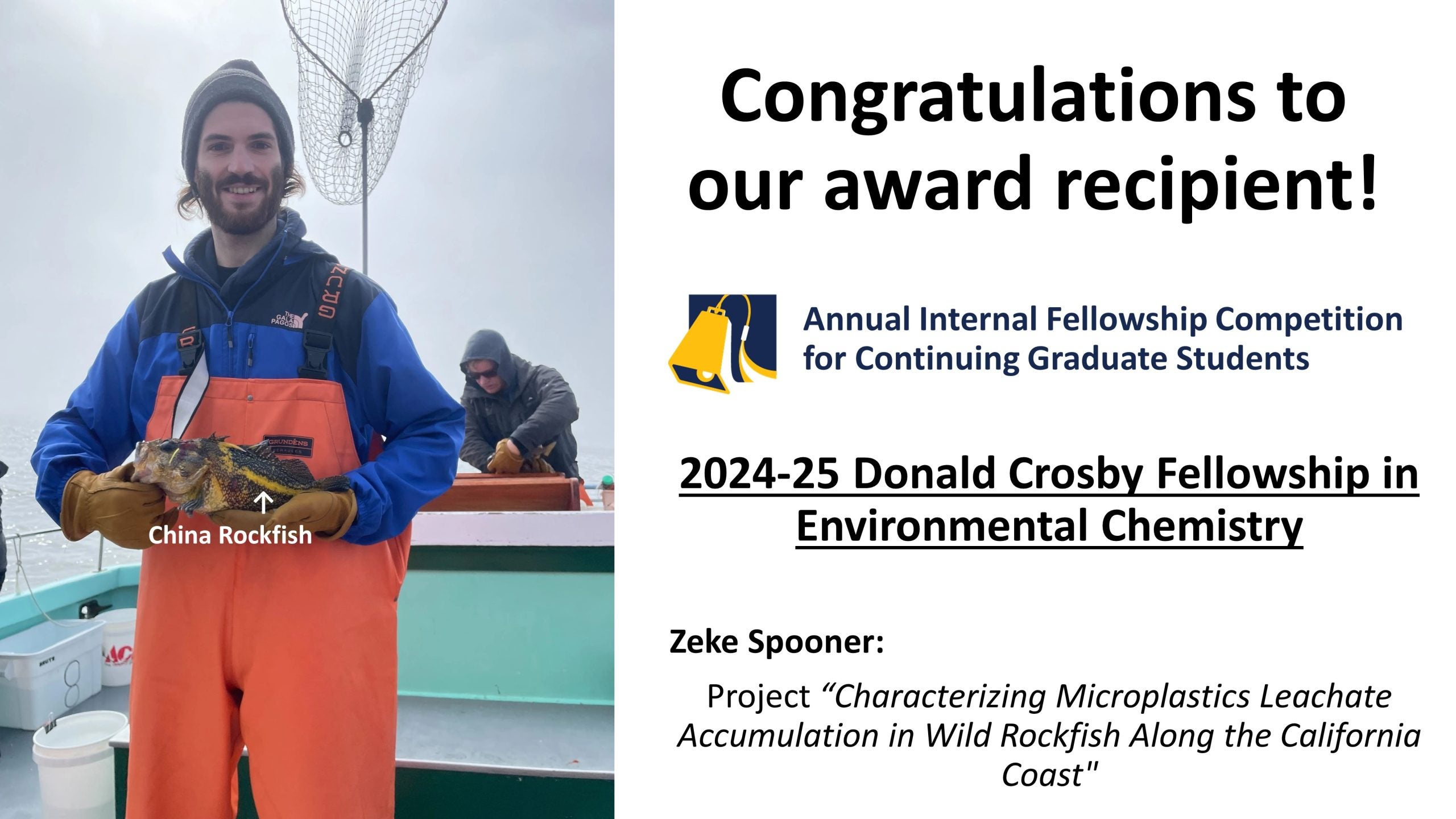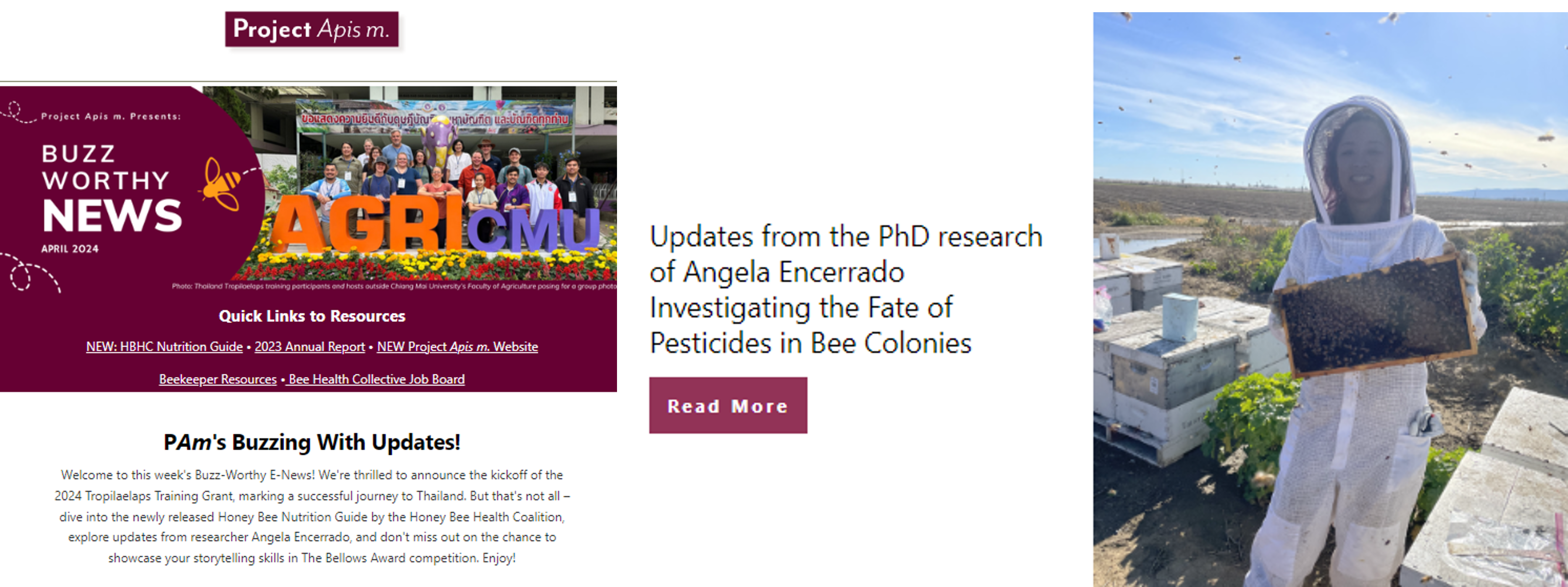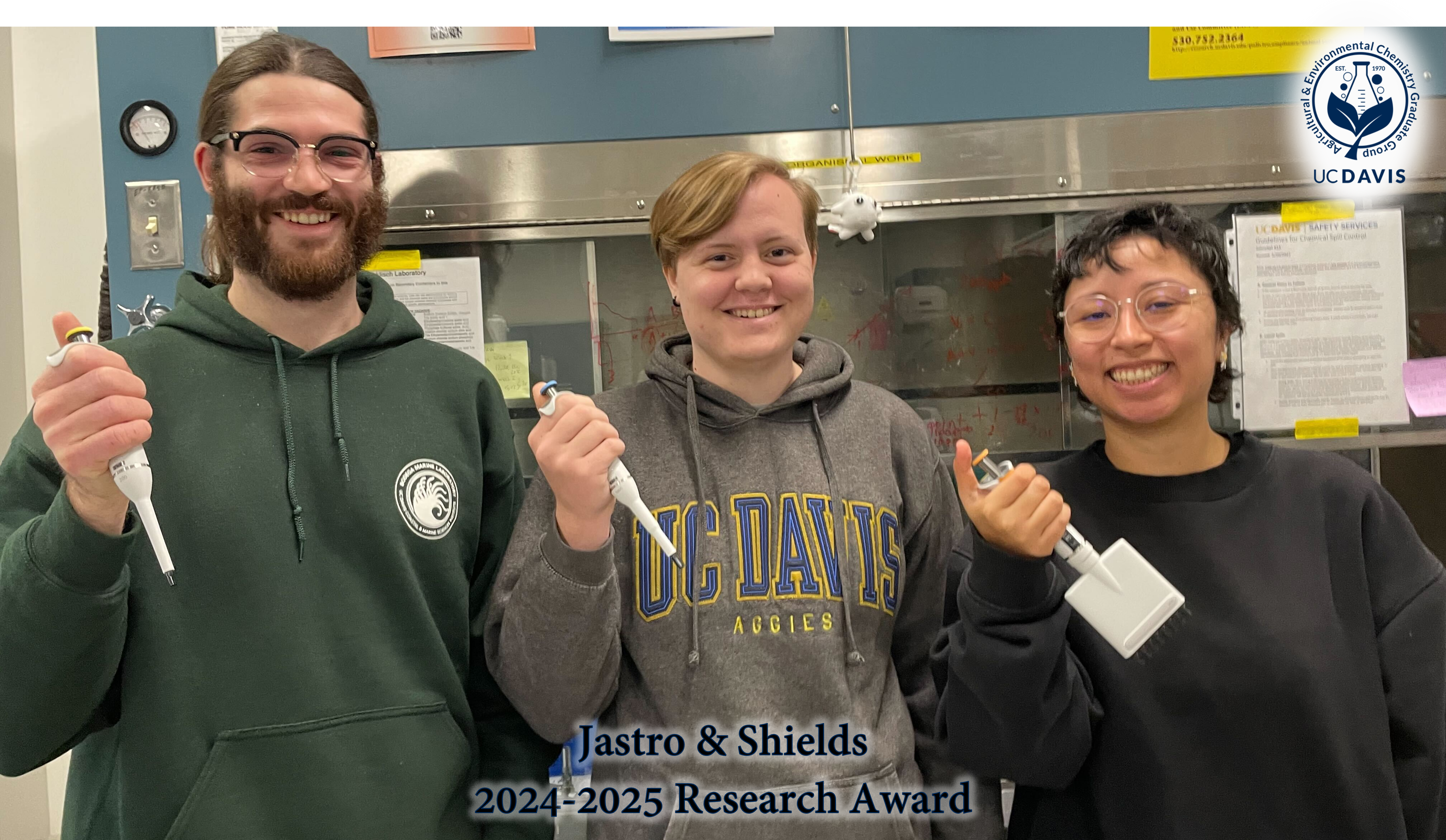
Three AgChem PhD students received the 2024-2025 Jastro-Shields fellowship award for their research proposals on:
Zeke (left)– “Characterizing Microplastics Accumulation in Wild California Rockfish”
Eli (middle)– “ Investigating the Toxicity and Biodistribution of Pollutant-Adsorbed Nanoplastics (PANs) on Lung and Glial Cells ”
Angela (right)- “C14 as a Novel Method for Tracing Pesticide Mixtures in the Honey Bee Hive”

